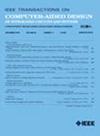基于最优子模型提取和动态稀疏调整的高效异构感知联邦学习
IF 2.9
3区 计算机科学
Q2 COMPUTER SCIENCE, HARDWARE & ARCHITECTURE
IEEE Transactions on Computer-Aided Design of Integrated Circuits and Systems
Pub Date : 2025-03-04
DOI:10.1109/TCAD.2025.3548003
引用次数: 0
摘要
联邦学习(FL)是一种高级框架,可以跨边缘设备协作训练机器学习模型。根据每个设备的资源能力分配最优子模型是提高训练效率的有效策略。然而,系统的异构性极大地增加了为每个设备合理分配子模型参数预算的难度,从而导致了离散问题。同时,数据的异质性使特定设备的最优子模型结构的选择复杂化,从而影响训练性能。此外,边缘环境的动态性,如网络通信和计算资源的波动,加剧了这些挑战,使从全局模型中精确提取适当大小和结构的子模型变得更加困难。为了解决异构训练环境中的挑战,我们提出了一个高效的FL框架,即HaloFL。该框架通过评估三个维度来动态调整训练过程中子模型的结构和参数预算:1)模型智能性能;2)分层性能;3)单位性能。首先,我们设计了一种数据感知模型单元重要性评估方法,以确定不同数据分布下的最优子模型结构。其次,利用该评价方法分析模型层的重要性,并在固定的参数预算范围内,将参数从非关键层重新分配到关键层,进一步优化子模型结构。最后,我们引入了一种资源感知的双ucb多臂强盗智能体,该智能体根据训练环境的变化动态调整子模型的总参数预算,使框架能够更好地适应异构设备的性能差异。实验结果表明,HaloFL在各种动态和异构场景下表现出出色的效率,与现有的FL框架相比,准确率提高了14.80%,速度提高了3.06倍。本文章由计算机程序翻译,如有差异,请以英文原文为准。
HaloFL: Efficient Heterogeneity-Aware Federated Learning Through Optimal Submodel Extraction and Dynamic Sparse Adjustment
Federated learning (FL) is an advanced framework that enables collaborative training of machine learning models across edge devices. An effective strategy to enhance training efficiency is to allocate the optimal submodel based on each device’s resource capabilities. However, system heterogeneity significantly increases the difficulty of allocating submodel parameter budgets appropriately for each device, leading to the straggler problem. Meanwhile, data heterogeneity complicates the selection of the optimal submodel structure for specific devices, thereby impacting training performance. Furthermore, the dynamic nature of edge environments, such as fluctuations in network communication and computational resources, exacerbates these challenges, making it even more difficult to precisely extract appropriately sized and structured submodels from the global model. To address the challenges in heterogeneous training environments, we propose an efficient FL framework, namely, HaloFL. The framework dynamically adjusts the structure and parameter budget of submodels during training by evaluating three dimensions: 1) model-wise performance; 2) layer-wise performance; and 3) unit-wise performance. First, we design a data-aware model unit importance evaluation method to determine the optimal submodel structure for different data distributions. Next, using this evaluation method, we analyze the importance of model layers and reallocate parameters from noncritical layers to critical layers within a fixed parameter budget, further optimizing the submodel structure. Finally, we introduce a resource-aware dual-UCB multiarmed bandit agent, which dynamically adjusts the total parameter budget of submodels according to changes in the training environment, allowing the framework to better adapt to the performance differences of heterogeneous devices. Experimental results demonstrate that HaloFL exhibits outstanding efficiency in various dynamic and heterogeneous scenarios, achieving up to a 14.80% improvement in accuracy and a $3.06\times $ speedup compared to existing FL frameworks.
求助全文
通过发布文献求助,成功后即可免费获取论文全文。
去求助
来源期刊
CiteScore
5.60
自引率
13.80%
发文量
500
审稿时长
7 months
期刊介绍:
The purpose of this Transactions is to publish papers of interest to individuals in the area of computer-aided design of integrated circuits and systems composed of analog, digital, mixed-signal, optical, or microwave components. The aids include methods, models, algorithms, and man-machine interfaces for system-level, physical and logical design including: planning, synthesis, partitioning, modeling, simulation, layout, verification, testing, hardware-software co-design and documentation of integrated circuit and system designs of all complexities. Design tools and techniques for evaluating and designing integrated circuits and systems for metrics such as performance, power, reliability, testability, and security are a focus.

 求助内容:
求助内容: 应助结果提醒方式:
应助结果提醒方式:


